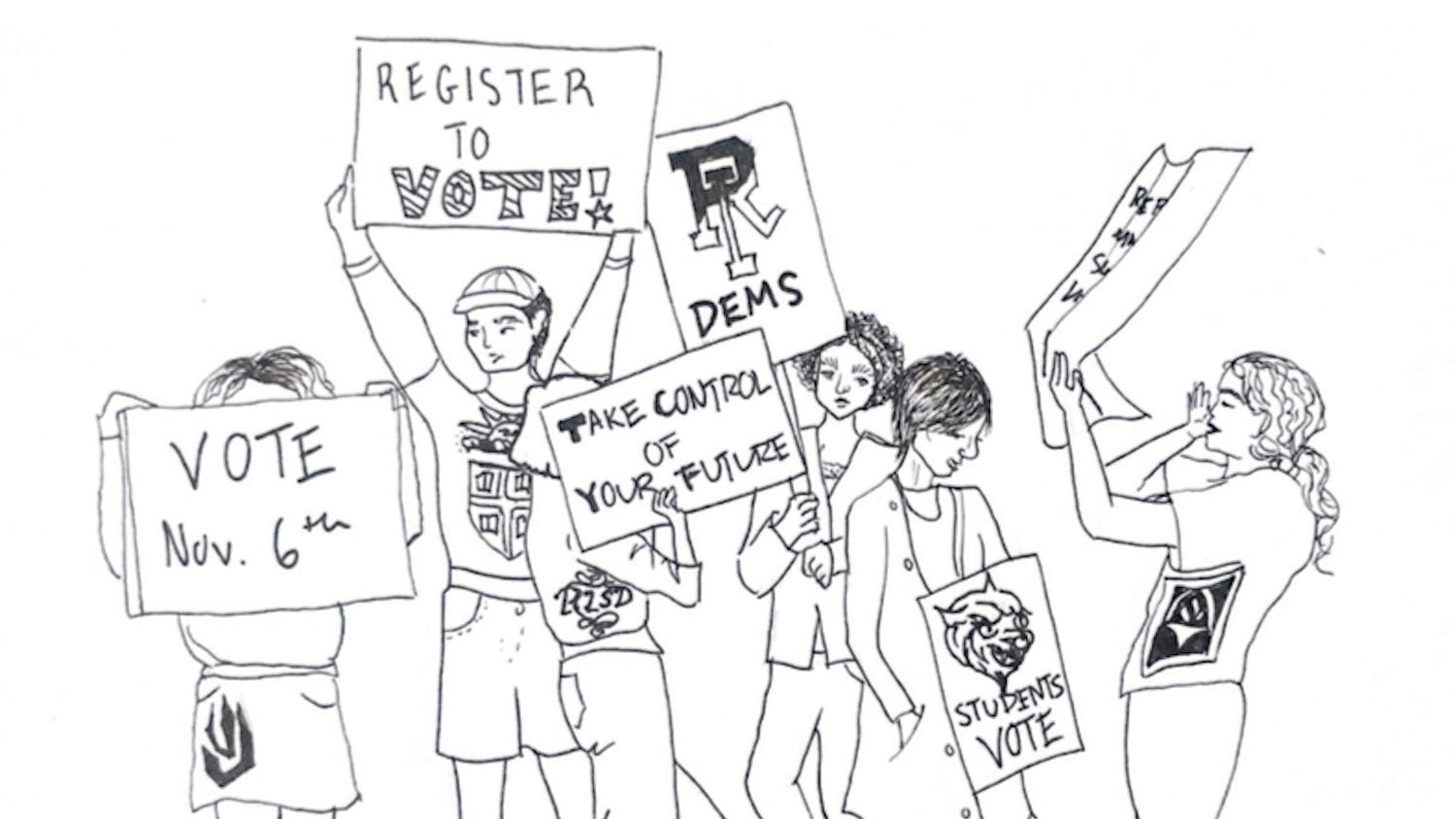After months of negotiation, the University has committed to contributing $31.5 million to Providence over the next 11 years in lieu of taxes.
At a press conference Tuesday morning, President Ruth Simmons warned of the strain increased payments would place on the University.
"Our faculty and students will find this very sobering," she said. "They will know immediately that they will have to live without so many things that are important to their world."
Events - such as the reception held with Gloria Steinem earlier this week - could become rarer with this commitment to the city, she said.
Faculty members and students registered a variety of reactions to the deal.
Faculty reaction
Faculty members praised Simmons for coming to an agreement with Providence.
"I'm inclined to trust that President Simmons came to a positive agreement for everybody," said Nathaniel Baum-Snow, assistant professor of economics.
Brown would have suffered if the city were forced to declare bankruptcy, said David Weil, professor of economics. "There are many undeserving people who are getting shafted - city employees, property owners - in that sense, Brown faculty and students are sharing in a very widespread pain," he said.
Weil said he thinks it is hard for the University to justify its budget constraints when it just opened a "luxury athletic center" -- but he added, "It's not a situation with obvious bad guys."
Hilary Silver, associate professor of sociology, said while the city has gone through a variety of different attempts to revitalize its economy - most notably the Providence Renaissance and Creative Capital campaigns - it must now focus its attention on the growth of its hospitals and institutions of higher education.
The University is locked into its location in Providence, so it has a "symbolic obligation to contribute" as a tax-exempt nonprofit, Silver said.
While the University may take a budgetary hit in the next few years, its contributions are working to improve the city, ensuring that notable faculty, guests and students are drawn to Brown, Silver said.
"How many students don't go to Penn because of the dangerous neighborhood?" Silver asked. "There are some trade-offs you don't see."
Student reaction
Student reaction to the agreement has been mixed. While some believe that the University is fulfilling its responsibility by increasing payments to the city, others think the administration is giving the city too much and wasting funds raised through tuition.
"I think it's a really great step for Brown to realize its place in a larger community," said Zack Mezera '13, an organizer for Brown For Providence, a student group that formed in recent months to encourage the University to increase payments to the city. "I'm glad to see both sides put aside their differences and find some common ground so we can move forward," he said.
But not all Brown students shared Mezera's enthusiasm about the University's increased contributions. "I don't think Brown needs to pay more than they have to as a non-profit organization," said Phil Denys '15. 'They're giving above what they have to pay," he added.
Sheza Atiq '14, a Herald contributing writer, said that though she is happy the University received several city blocks and parking permits in return for the increased payments, she thought the University should focus its priorities on other expenses more directly related to students, such as financial aid - particularly support for international students.
"If the city needs cash in the short term, Brown should infuse the city with cash, but get some discounts over the long term," said Alex Green '13, adding that it seems like the money spent will essentially go toward buying faculty parking permits.
"It's just not cool, Ruth Simmons, not cool," he added.
Sarah Clinckemaillie '15 said she wonders how the increased contribution will affect her in the future. "I wonder how much financial aid there will be and where the money is coming from," she said.
But Joseph Sacks '15, a Providence native, said the University will not pay too much considering the city's dire fiscal status. "As a Brown student, I think we use a lot of Providence's resources in a way that's beneficial and non-beneficial to the city," Sacks said. "I'm proud so much money is going towards the city."
Anthony White '13, the president-elect of the Undergraduate Council of Students and a member of Brown for Financial Aid, said the deal is "a great way to move forward with the city." The deal ensures Brown and Providence will have a sound relationship when University President-elect Christina Paxson arrives in July, he said.
White dismissed worries that the deal requires too much from the University. "I definitely trust the judgment of Ruth Simmons and her negotiating committee," White said. "As a member of Brown for Financial Aid, I don't think it will affect our ability to provide financial aid," he said, but he stressed he could not speak on behalf of the organization. The only potential concern would be if the University ended up in the same negotiation with Providence at a later time, he said.
"We need to make sure that our additional payments are part of a larger effort by Providence to increase revenue, whether by making sure that Brown can continue to develop or by developing new incentives for commerce," White wrote in an email to The Herald.




